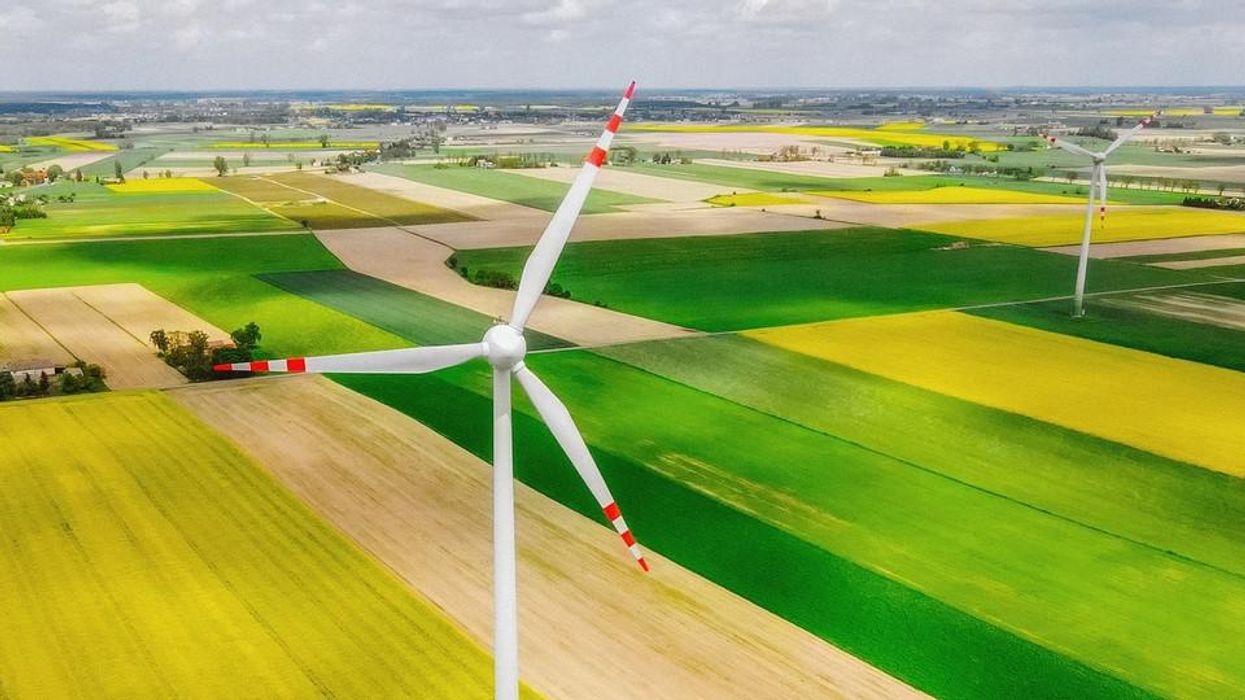If You Want Cheaper Energy, Vote For Kamala Harris
Donald Trump's "drill, baby, drill" mantra portrays fossil fuels as the magic road to lower energy prices. He's exactly wrong. Solar, wind and other renewable sources are.
Renewables already provide electricity to consumers in Europe that's so cheap, it's at times free — this according to The Wall Street Journal, a decidedly non-socialist news source. Such are the rewards of Europe's green energy revolution, supercharged after Russia's invasion of Ukraine caused a spike in oil prices.
Example from the Netherlands: Jeroen van Diesen can get free energy based on whether the sun is shining or the wind is blowing, especially when demand for power is low. Sometimes the price actually dips below zero. Van Diesen says he made about $34 over the past five months charging his car when the price turned negative.
"Wholesale prices swing wildly each hour of the day," the Journal notes. And as more electricity flows from wind and solar installations, the price can go into negative territory. In other words, the prices can swing wildly downward.
The wholesale price in the Netherlands has been down to zero or below for eight percent of the year. In Spain, that's happening 12 percent of the time.
Most of us in the United States pay a fixed price for electricity set by the power company. But in much of Europe, people can sign up with providers who charge hourly prices on the wholesale power market.
Europe also went all in on alternative energy sources like wind and solar power whose generation costs are minimal. Last year, 44 percent of the European Union's electricity was produced by renewables, versus only 21 percent in the U.S.
Back in Europe, energy nerds have set up smart meters in their homes so that when the price of electricity falls, their cars automatically begin to charge. And manufacturers have found ways to send low-priced energy to gas tanks that function like virtual batteries.
The Biden administration has been overseeing massive investment in wind, solar, electrical vehicles and energy storage. These subsidies cost money, but so do most initial investments. As Europe has shown, these outlays can eventually produce handsome returns for the economy.
And so what are Trump's plans for a green-energy future? Well, Trump has vowed — Lord, give me strength — to target offshore wind projects. "They're killing the whales," he hollers, which marine biologists say is baloney. The 2025 Project's blueprint for another Trump term calls for ending all subsidies to promote the development of renewable energy, which, we must add, is also clean energy.
At the debate with Harris, Trump took aim against renewables with another lie, about Germany going back to fossil fuels. A spokesman for Germany's economic ministry swatted down that nonsense. "We already generate more than half of our electricity from renewable energies," he said. "In 2030, it will be 80 percent."
Real time pricing combined with renewable energy would be great for the United States, especially sunny California and the windy Great Plains. U.S. regulators became reluctant to let customers sign up for such plans after a rare winter storm in Texas sent wholesale prices temporarily soaring in 2021. Some are reconsidering.
In Southern California, the wholesale price has been negative for nearly 20 percent of the year, thanks to the region's boom in solar power installations. California has started a pilot program to offer real time pricing.
To be honest, the overall electricity bill wouldn't be zero because there remain costs for generation, transmission, and distribution. But, boy, they could be far, far closer to zero.
So what will it be, American consumers? The clean energy future is also the cheap energy future, and only Harris wants to take us there.
Reprinted with permission from Creators.











